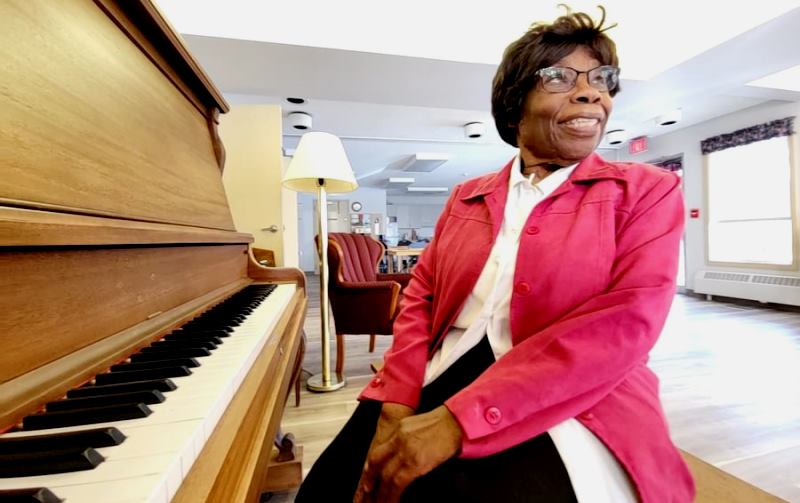
Growing up Black in Lacombe: A Black History Month story
This story is part of a special series rdnewsNOW is running throughout February in celebration and observance of Black History Month.
—
Miriam Haynes sits at a piano in the relaxing common space of her senior’s apartment building in Lacombe, Alberta, posing for a photograph to be used in the first news story she’s ever been party to.
“Oh yes, I can play the piano,” the 78-year-old answered before taking a seat and cracking the biggest smile, excited.



